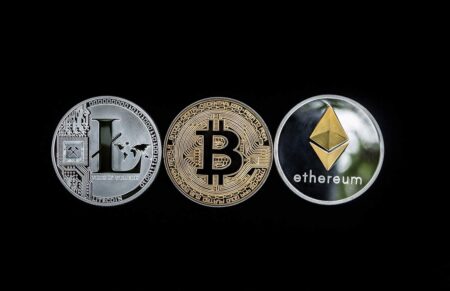Knowledgeable people predict that 2023 may witness heavy turbulences in the global marketplaces. These marketplaces have to do with digital assets.
In other words, the economy may suffer due to varied reasons. They could include general instability, inflation, recession, shortage of energy, etc.
If you’ve heard of non-fungible tokens (NFTs), you might have thought about investing in them. Visit nft-trader to begin trading NFT.
Nonetheless, the experts have concluded that five major issues may prove troublesome for the digital asset marketplaces next year.
Also Read:
- What Will Happen to Home Prices in 2023
- Economic Impact of Russia-Ukraine Conflict
- 6 Top famous personalities in 2023
Production Might Have to be Re-shored
The ongoing pandemic has been responsible for supply chain shocks. Additionally, the Russia-Ukraine war has affected the global economy.
Therefore, major economies across the globe, are wondering if they should re-shore manufacturing.
True, the strategy would bring gains eventually, thereby helping domestic growth. However, re-shoring is not as easy as it sounds.
Manufacturers will have to invest heavily in production in terms of money and time. Furthermore, the easy availability of skilled labor is a requisite.
Even if accepted as a short-term/medium-term solution, the strategy may not work well. Jobs will move from inexpensive offshore locations to high-income nations.
As a result, inflation will get a boost. Corporations will have to accept cuts in profit margins as they dole out high wages to skilled workers.
Shortages of Net Energy
The existing shortages of fuel are likely to continue throughout the next year. An example is Russia, which is already suffering shortages in supplies.
It is because it refuses to end its war with Ukraine. Therefore, the country is experiencing punishment via international sanctions.
Similarly, the existing energy architecture of Europe has experienced extreme damage. Part of the Nord Stream 1 pipeline was destroyed by a blast.
Repairs cost, in terms of time and money. Furthermore, energy companies have to cope with ESG mandates. They are so tough, that justifying large-scale projects involving fossil fuels, is nigh impossible.
True, the world is experimenting with renewable energy sources and electric vehicles. However, the elements required for renewables are not difficult to source.
They include aluminum, lithium, chromium, and cobalt. As for nuclear plants, they are excellent solutions. However, they might take years to go online and receive support from an apprehensive public.
Inflation Might Persist for a Long Duration
Central Banks find it challenging to confront rising inflation. Even their favorite weapon for controlling prices does not seem to work too well then. This weapon is interest rates.
The issue is further compounded by the presence of enhanced globalization. It has created an era of secular inflation, wherein imbalances are occurring regarding demand and supply. Even the higher borrowing costs will exhibit limited power.
In the past, whenever prices have risen to a state of unaffordability, inflationary cycles have come to a halt. In turn, there would be a plunge in demand.
Nonetheless, the upward pressure would not ease. Businesses and consumers would have to pay higher costs for energy.
Adopting Economies that are Commodity-Driven
Nations would like the supply chains offering raw materials, to be resident within local boundaries, or within the borders of allied nations. The latter refers to outsourcing.
To illustrate, countries that offer lax tax regulations, and plenty of cheap labor, have taken over the mining of crucial rare earth.
Highly-developed economies outsource this task to them. They do so because they are burdened by heavy taxes and high-wage jurisdictions.
Thus, if commodities cannot be sourced at home, trade alliances may be shifted around. In other words, a geopolitical shift is coming into play. The world is moving from a unipolar state to a multipolar one.
Quickening the Pace of Decentralization
It is happening because of two factors. One of them refers to a geopolitical world order, which is changing.
The culprits responsible for this change include conflict, broken supply chains, and stringent monetary policies.
Then again, COVID-19 has led to the dissemination of wrong information, reduced trust in institutions, and economic problems.
Consumer behavior is changing. People are seeking alternative ways to access diverse services. Technologies are becoming more advanced, and helpful.
As for the cryptocurrency world, varied platforms are trying to adhere to decentralization.
After all, competition is heavy, as evinced by the knowledge displayed on the investment and trading platform.
The more attractions that cryptocurrency exchanges offer, the better they will be able to lure opportunistic investors.








